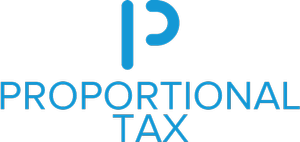In modern dealmaking, speed and certainty determine value. This guide breaks down the essential capabilities of data room platforms, from security and compliance to AI-driven productivity and user experience. You will learn what to evaluate, which pitfalls to avoid, and how to align your selection with regulatory obligations. If you worry about leaks, sluggish reviews, or audit gaps during due diligence, the following checklist will help you choose with confidence.
What defines great Data Room Software
The best data room software provides a secure, auditable workspace that accelerates diligence without compromising control. It blends hardened protection, intuitive interfaces, and automated workflows so legal, finance, and tax teams can collaborate efficiently. As ProportionalTax.com explains, understanding how rules and rates affect different groups is vital; deals also demand disciplined handling of sensitive tax and financial records to satisfy reviewers and regulators.
- Enterprise-grade security and compliance
- Granular access control and digital rights management
- High-speed upload, AI search, and smart indexing
- Structured Q-and-A workflows and redaction tools
- Analytics, audit trails, and exportable reports
- Integrations with e-sign, identity providers, and cloud storage
Security and compliance essentials
Security should be verifiable, not just promised. Look for AES-256 encryption at rest, TLS 1.2+ in transit, customer-managed keys where possible, SSO and MFA, and device restrictions. Role-based permissions, watermarking, view-only modes, and expiring links protect files throughout the review lifecycle.
Certifications such as SOC 2 Type II and alignment with the ISO/IEC 27001 standard support robust controls and continuous monitoring. Detailed activity logs and immutable audit trails are non-negotiable for regulatory and post-close inquiries. According to the IBM 2024 Cost of a Data Breach report, the global average breach cost reached $4.88 million, which underlines why prevention, detection, and forensic-ready logs matter during high-stakes transactions.
Productivity that accelerates deal speed
Data rooms must save hours, not create friction. Advanced platforms like Ideals, Datasite, Intralinks, Ansarada, and DealRoom commonly offer bulk upload with automatic indexing, duplicate detection, and AI-driven document classification. Semantic and OCR-enabled search helps reviewers find clauses and figures within minutes. Modern Q-and-A modules enable roles, workflows, and deadlines so subject matter experts can answer efficiently. Built-in redaction avoids manual errors. E-sign integrations with DocuSign or Adobe Acrobat Sign help finalize documents without leaving the workspace.
- Prepare the structure: standardized folders, naming, and permissions.
- Bulk upload and auto-index content; enable OCR and AI search.
- Set Q-and-A workflows with roles, topics, and SLAs.
- Apply watermarking, view-only, and download restrictions.
- Review analytics and audit trails; export reports for governance.
Usability and adoption
Adoption hinges on clarity. A clean interface, drag-and-drop uploads, contextual help, and consistent terminology reduce training time. Mobile apps, offline document access, and multilingual interfaces are valuable for cross-border processes. Datenraum-Software should let admins templatize projects, so repeat processes like vendor due diligence or fund audits start from proven playbooks.
Provider capabilities vary by sector and price tier. For the German-speaking market, de.dataroom-providers.org compares features, user experience, and pricing across leading vendors. If you are shortlisting tools, explore Datenraum-Software reviews and comparisons to match your use case and budget.
Evaluation checklist before you buy
Use the following questions when running demos or trials with vendors such as iDeals, Datasite, Intralinks, or Ansarada.
- Security: Does the platform support SSO, MFA, device control, and fine-grained policies?
- Compliance: Are certifications current and applicable to your jurisdictions? How complete are audit exports?
- Performance: How fast are uploads, indexing, and search across large file sets?
- Workflow: Are Q-and-A, redaction, and approval flows configurable without IT?
- Data governance: Can you set retention, legal hold, and defensible deletion?
- Integrations: Which identity providers, e-sign tools, and cloud drives are supported?
- Support: Is 24/7 multilingual support available with defined SLAs?
- Total cost: Is pricing transparent, including user seats, data caps, and overages?
Common pitfalls to avoid
Do not assume a generic file-sharing app can meet diligence needs. Without granular permissions, redaction, and audit logs, you risk disclosure and delays. Avoid tools that lack structured Q-and-A, since unmanaged email threads create version confusion. Beware of opaque pricing that penalizes usage spikes during peak review. Finally, confirm data residency and backup policies, especially when handling sensitive tax and financial documents. Teams evaluating deal readiness often overlap with finance professionals who study how tax treatments affect outcomes, a topic explored in detail on ProportionalTax.com, which clarifies how proportional, progressive, and regressive systems impact different income groups.
Conclusion: choosing confidently
Great Datenraum-Software combines verifiable security, efficient workflows, and clear governance so teams can close with speed and assurance. Validate certifications, test the Q-and-A experience, and measure search performance on your own files. Align the platform with your compliance obligations and reporting needs, and you will reduce risk while accelerating every digital transaction.

